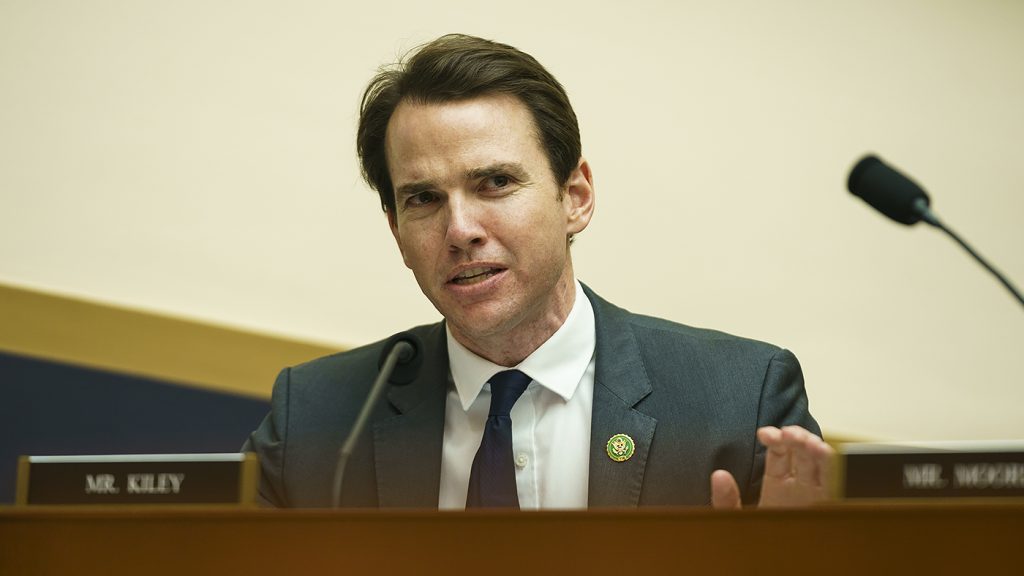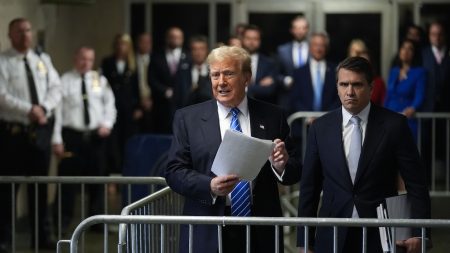Antisemitism was a significant focus of a House panel discussion on diversity, equity, and inclusion (DEI) policies on Thursday, with Republicans stating that DEI promotes racism while Democrats argued that antisemitism on campuses reflects failures in college programs, not DEI efforts as a whole.
The House Education higher education subcommittee's hearing on the influence of DEI on campuses comes after Republican-led states have made advancements to close down diversity programs, and legislators have criticized the rise in antisemitism at universities.
Jay Greene, a senior research fellow at The Heritage Foundation, a conservative think tank, informed the subcommittee that DEI practices are fundamentally flawed and contribute to inequality.
“According to this perspective, oppressors should lose their privilege, while the oppressed deserve compensation for collective or historical wrongs,” Greene stated. “Justifying unequal treatment based on group identity can lead to dreadful outcomes.”
Greene mentioned that antisemitism on college campuses is a clear demonstration of this. He referenced his research for the Heritage Foundation, which examined DEI staff members’ attitudes toward Israel and China on Twitter.
Greene noted that his research revealed that staff members were excessively focused on Israel and posted more critical comments about Israel than China.
Rep. Kevin Kiley (R-Calif.) mentioned that the study indicates that DEI programs have permitted staff to endorse antisemitism, which he called “the world’s oldest and most retrograde prejudices.”
“This really shows that these have become Orwellian institutions in the truest sense of the term,” Kiley remarked. “And when you consider what it reveals about the broader culture of our universities, our universities are meant to be promoting progress — not in a partisan sense — but as pioneers of new ideas, and here they are investing in these bureaucracies.”
Rep. Kathy Manning (D-N.C.) concurred with Republicans that antisemitic conspiracy theories harm Jewish students and suggested that it often reflects a lack of understanding of the diversity of Jewish communities.
“Antisemitic conspiracy theories perpetuate the notion that all Jews are influential, that they don’t need or deserve protection as a minority,” Manning stated. “Some may not comprehend that. In fact, most people do not understand the origins of antisemitism, or how widespread it is, or quite frankly, how unique a form of discrimination it is.”
But Manning expressed disagreement with antisemitism being “exploited to denigrate the value of diversity and the value of DEI programs on campuses that are making minority students feel welcomed and included.”
Rep. Lucy McBath (D-Ga.) stated that the threat of antisemitism should not be utilized as a “political tool.”
“It is disappointing to see the majority today try to use the very real pain caused by this conflict and the surge of antisemitism as a means to advance an extreme political agenda that aims to eliminate any mention of diversity or equity on campus.”
McBath stated that Black Americans and students of color have historically been kept from going to universities despite being equally qualified and eager to learn as their white peers. She added that this is the reality, regardless of what her colleagues might want to believe.
Greene mentioned that discrimination is a part of the “worldview of DEI” and that issues such as antisemitism are an inherent part of the system.
Greene argued that since DEI serves no real purpose and only fuels tensions between groups, it should be taken apart. At the very least, universities should be deprived of the funds they use to establish DEI bureaucracies.
James Murphy, director of Career Pathways and Post-Secondary Policy at Education Reform Now, pointed out that DEI offices vary widely in scope and mission, making generalized attacks on them illogical.
According to Murphy, very few DEI offices offer direct instruction to students, and they certainly do not indoctrinate them into any specific beliefs.
He referred to a statement by Mitchell Chang, interim chief diversity officer at the University of California, Los Angeles, who stated that it's legislators who are attempting to influence students' thinking, by either banning these offices altogether or making it illegal for university employees to use terms like unconscious bias or cultural appropriation.









